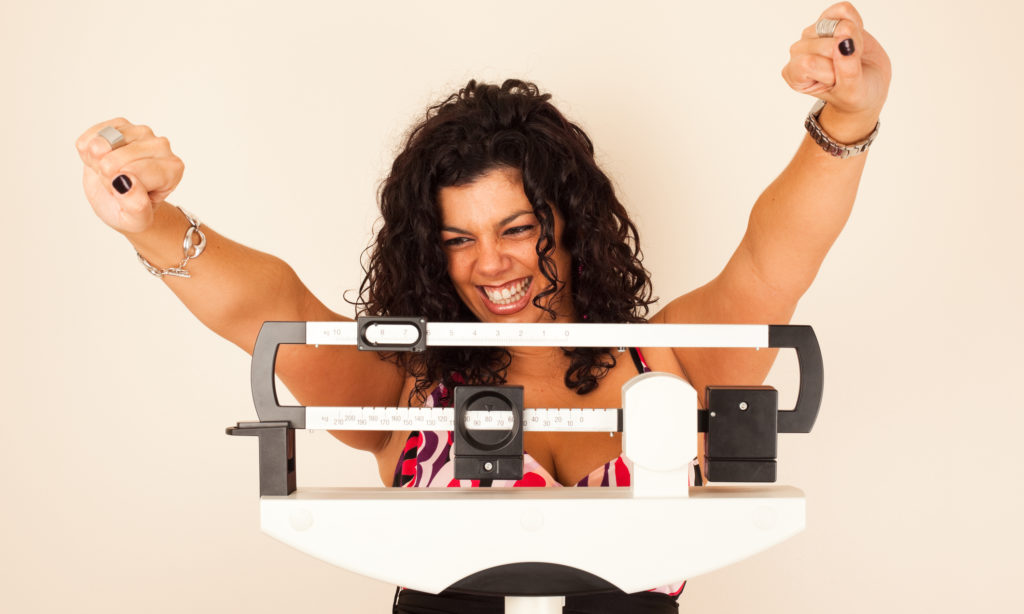The Protein and Weight-Loss Connection

If part of your overall wellness strategy is to shed a few pounds, keep in mind that eating protein-rich food not only helps to curb hunger, but also helps to retain muscle mass. Muscle mass is an important factor for keeping a healthy weight over the long term, which is really what you’re after. To reach that outcome, eating more protein will likely help, and doing that with real, tasty food is the ideal, and is easier than you may realize.
Maintain your muscle mass during weight loss
Muscle burns more calories than fat tissue, which is why you want to minimize muscle loss while you lose weight. To maintain that muscle reserve you work so hard to achieve, keep up your regular resistance training and eat-high quality protein at each meal.
TIP: For optimal health, shift gears to a focus on wellness vs weight-loss. Better-for-you lifestyle choices are more likely to stick long term vs quick-fix approaches.
Think protein needs per meal, not per day
For optimal muscle protein-building power, emerging research suggests rather than working towards a daily protein target, we need to think about meeting our protein needs at each meal, or by spreading it out evenly across the day.
TIP: For most of us, breakfast is the meal most often short-changed for protein.
Protein needs almost double during weight loss
During weight loss, healthy adults need to almost double protein intake from 0.3 grams per kilogram body weight to 0.5 grams per kilogram body weight PER MEAL, based on four meals per day (or three meals and one sizeable snack). Let’s unpack those numbers!
For an 81 kg (180 lb) man, that’s 40 grams protein across four eating occasions and for a 68 kg (150 lb) woman, that’s 34 grams of protein across four eating occasions. More protein is not necessarily better. The calories from any excess protein will be stored as body fat, not ideal when you are trying to lose weight.
TIP: Eating protein-rich food at each meal, along with resistance training, helps to slow age-related muscle loss which starts in our 40’s. This practice also helps to keep our bones healthy. Both are vital for healthy active aging.
For ultimate nutrition, choose food over supplements
Meeting your protein needs with tasty, naturally-nourishing foods is easier than you think. Remember, supplements are just a back-up for a healthy diet, not something we should rely on day-in and day-out. The word supplement is just that – not a food, a supplement. There are synergistic nutritional benefits of eating whole foods that cannot be replaced with highly processed protein bars or powders.
Not all protein-containing foods are protein-rich*
Calculating grams of protein per meal is not practical or necessary. However, it can be useful to know what foods contain protein in low, moderate and high amounts.
Take note that all of the foods below offer a unique package of nutritional goodness and are all excellent whole food choices.
Especially important for weight loss goals, one should take note of protein density – the amount of protein per calorie. For example, it takes 3.5 servings of almonds at over 700 calories to get the same amount of protein in one 75 gram serving of cooked beef at 184 calories.
Low: Foods with 5-10 grams of protein per serving
- ¼ cup hummus (5 grams, 100 calories)
- ¾ cup quinoa (6 g protein, 175 calories)
- ¼ cup almonds (7 g protein, 210 calories)
- 2 tbsp peanut butter (8 g protein, 180 calories)
- ¾ cup chickpeas (9 g protein, 170 calories)
- 250 mL 2% milk OR soy beverage (9 g protein, 130 calories)
- ¾ cup plain 2% yogurt (9 g protein, 90 calories)
Moderate: Foods with 11-16 grams of protein per serving
- ¾ cup black beans (11 g protein, 180)
- 2 hard-cooked eggs (12 g protein, 140 calories)
- ¼ cup hemp seeds (13 g protein, 240 calories)
- 50 g cheddar cheese (13 g protein, 230 calories)
- ¾ cup lentils (13 g protein, 167 calories)
- ¾ cup regular firm tofu (16 g, 150 calories)
High: Foods with 17-grams or more of protein per serving
- ¾ cup, 2% Greek style yogurt (17 g protein, 122 calories)
- ¾ cup edamame, shelled (17 g protein, 200 calories)
- 2.5 oz. Atlantic salmon, cooked (17 g protein, 150 calories)
- 2.5 oz. chicken (22 g protein, 140 calories)
- 2.5 oz. pork (23 g protein, 140 calories)
- 2.5 oz. beef (26 g protein, 180 calories)
*Data sourced from Canadian Nutrient File, accessed October, 2018.

